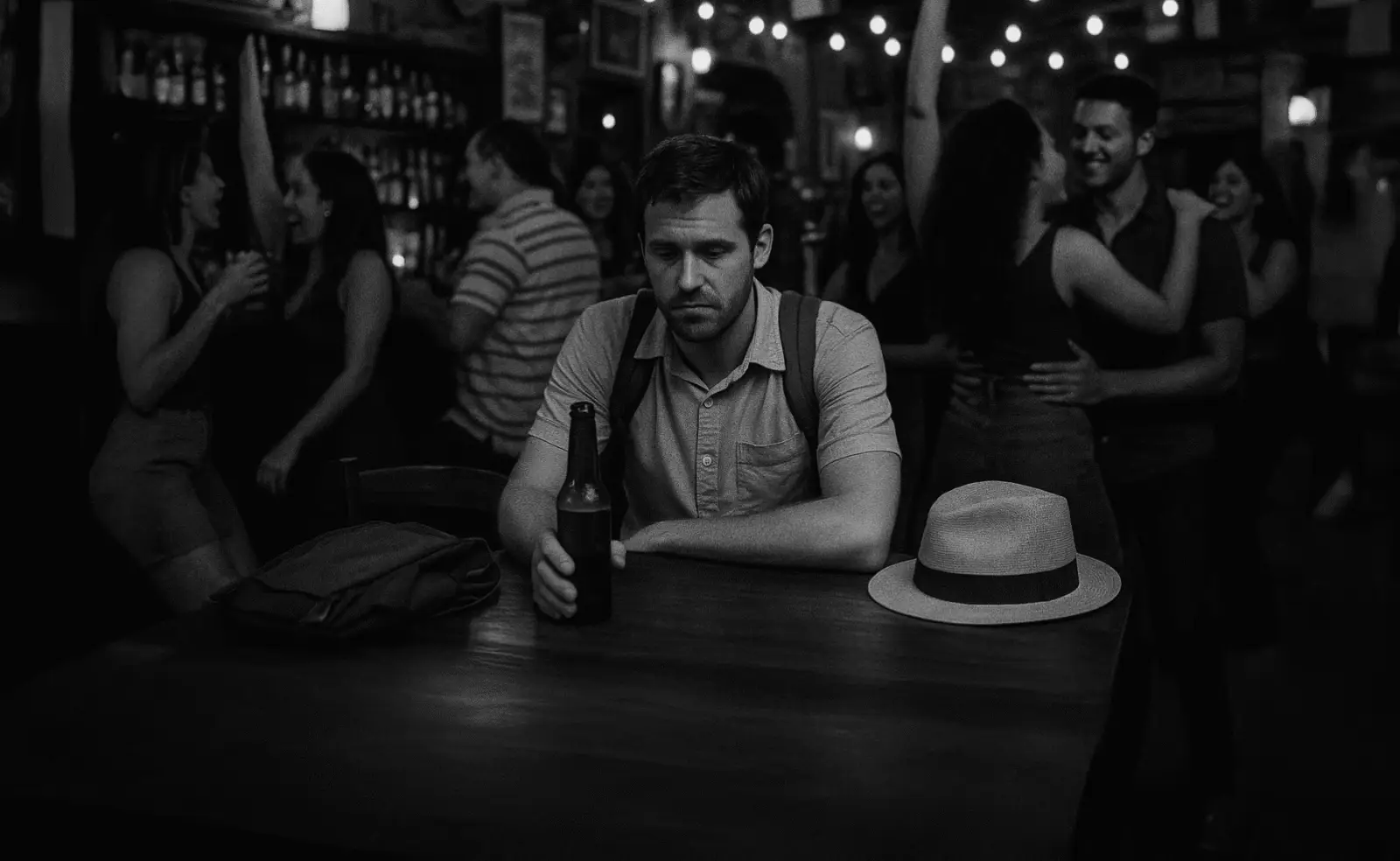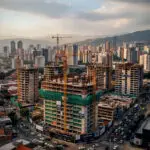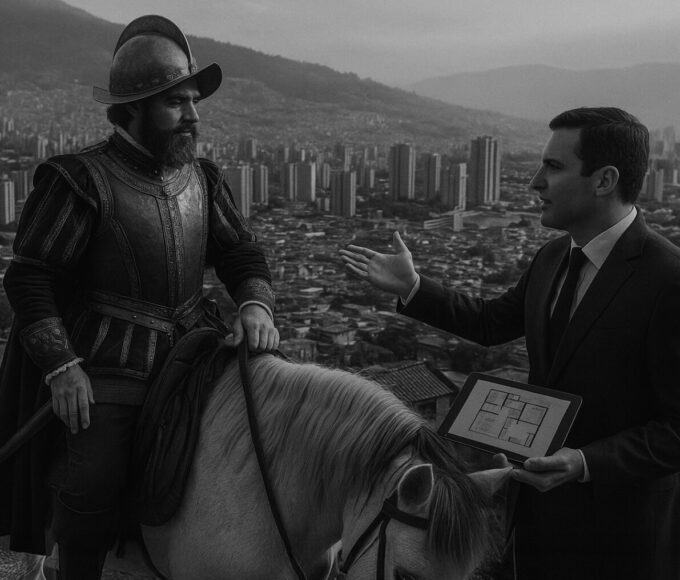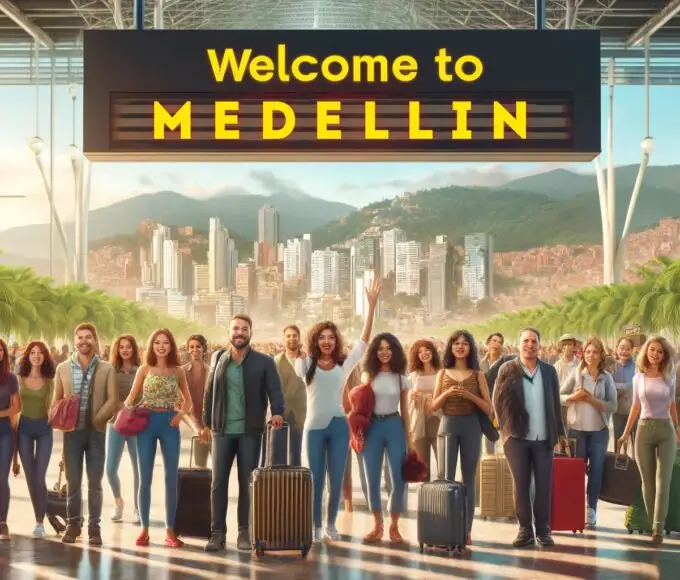
Why does Medellín seem to settle for being a cheap destination?
Today I read a news item from El Colombiano about - "The top 10 nationalities of tourists arriving in Medellín"- and I kept thinking:
Medellin is cheaper than ever for a foreigner coming with dollars or euros, even Mexican pesos.
The question is: are we going to keep selling cheap beer and nostalgia for a 30-year-old narco story, or are we going to invest and create worthwhile experiences and build a more serious tourism industry?
Because the hotel industry cannot do it alone.
The tourist has arrived. He has dollars. He has time. And in Medellín we continue improvising.
The data doesn't lie. The United States represents 32% of international tourism in Medellin. It is followed by Panama, Dominican Republic, Mexico and Peru. All with currencies stronger than the Colombian peso. All with a purchasing power that, in the current context, can generate much more value than what we are capturing.

But there is a painful paradox: while they arrive with dollars, we continue to sell as if the tourist earns in pesos. And I am not talking about commercial spaces such as restaurants or discotheques, where the increase in prices clearly has a negative impact on the local client, I am referring to products and services created solely to satisfy the tourist.
Other destinations with similar conditions -such as Thailand, the Philippines or Argentina- have built sophisticated, profitable and sustainable tourism ecosystems around this international visitor. Here, Medellín continues to appeal to low-cost, spontaneous, unscripted tourism without clear direction or proposal.
There is demand. There is interest. There is capital floating in the city every week. What there is not - or at least not on a sufficient scale - is a comprehensive proposal to turn it into structural value for the local economy.
It is not wrong to tell Escobar's story. What is bad is not telling any other story.
Talking about Pablo Escobar is not wrong. To deny that part of history would be absurd. What is wrong is to continue to position that story as the center of our tourist narrative, when for decades Medellín has had many other things to tell.
And the most interesting thing is that there are already places that understood this without having to give up the past.
Let's look at Guatapé. There is also the legend of an abandoned farm that supposedly belonged to Escobar. But that is not what drives tourism. What attracts visitors is the Peñol stone, the landscape, the colors of the town, the water activities, the offer of experiences that has been growing.
Guatapé did not erase the past, but built a clear, attractive and coherent tourist present. It does not depend on morbidity, because it does not need it. It has its own identity.
In Medellin we still continue to be pushed by the tourist to a single story. One that, moreover, is being exploited in a poorly curated way, without a clear value proposition beyond repeating the same tours, you need to see people crowded in informal toures outside the house where Pablo was made homeless to realize the reality.
It's not about censorship. It's about better execution.
At Blackroom we believe that the future of tourism in Medellín lies in telling more stories and executing better experiences. In recognizing that the international visitor already knows our history, but is now looking for new reasons to stay.
Salsa doesn't need a superstar. It just needs a good show, well told.
Many will think that what sells the most of Colombia abroad is reggaeton. And they are not wrong. It is one of our greatest cultural exports.
But here's an inconvenient truth: reggaeton as a live experience only works on a large scale when Maluma, Karol G or J Balvin are on stage.
And that's not going to happen four times a week.
Salsa, on the other hand, does not depend on an iconic figure or a hit of the moment. It's more about the rhythm, the show on stage, the collective energy, and -above all- the possibility of learning to dance to it. That makes it a perfect platform to generate repeatable, constant and profitable experiences.
In addition, it is not an alien genre for the arriving tourist.
Especially the North American, who for decades has been attracted to the idea of traveling to Cali, Havana, San Juan or even New York looking for just that: live Latin music, good shows and an excuse to move.
In Medellín there are already dance academies that sell packages of salsa classes to tourists, and they do well, so why don't we have a recurring, professional show, designed for that same public?
It would not be an invention. It would be to formalize something that already happens. It would be to package it better, do it in English, raise the quality and multiply the impact.
From Blackroom we believe that the city is wasting a cultural asset that could become an economic engine. A salsa show with professional choreography, costumes, lights, live music and an interactive component is not only viable: it is urgent and it matters little that some detractors think this idea belongs more to Cali.
Because while we are still waiting for the next massive concert, hundreds of tourists are here this week... looking for something that does not yet exist.
We don't need more beds. We need more reasons to stay more nights.
The hotel offer in Medellín has grown at an admirable speed. Local operators have done their homework: invest, professionalize, optimize operations, improve service. But we cannot continue to think that the responsibility of tourism ends when the guest receives the key.
The tourist's experience begins at check-in, but is defined by what they experience afterwards:
Where does he go? What does he discover? What surprises him? What keeps him coming back?
If the answer is just "go out to eat" or "go clubbing", we are missing out on a gold mine.
The city needs a network of well thought out, programmed and communicated experiences. From signature cuisine to world-class wellness. From local design to immersive experiences. From cultural tours to professional shows. It's all part of the ecosystem.
Let's not miss the opportunity
This is a historic moment for Medellín. We have never had so many international eyes on us. We have never received so many travelers with purchasing power. We have never had so many reasons to do things right.
But the tourist will not wait.
The tourist is here. With dollars. With desire. And if Medellín doesn't give him something unforgettable, someone else will.
Alejandro Gonzalez Uribe
Co-founder of BLACKROOM and MACCA. I'm obsessed with turning good ideas into profitable hotels—built from the user's desire and the investor's logic
Recent Posts
Related Articles
"Gentrification" in Medellín: victims of change or witnesses of progress?
When coming to Medellín becomes a sin Today Medellín is on the lips...
Labor reform in Colombia: the silent blow to the hotel industry
Introduction The hotel industry, by its nature, operates without pause, attending to...
200 million dollars from Tourism for Medellin in 2024: An Engine for the Local Economy
Introduction Medellin has emerged as a hot spot for tourism, capturing more than...
Colombia Shines on the World Stage: A Destination of Inclusion and Opportunities in the Hospitality Industry
Introduction In a world increasingly aware of the importance of...












Leave a comment